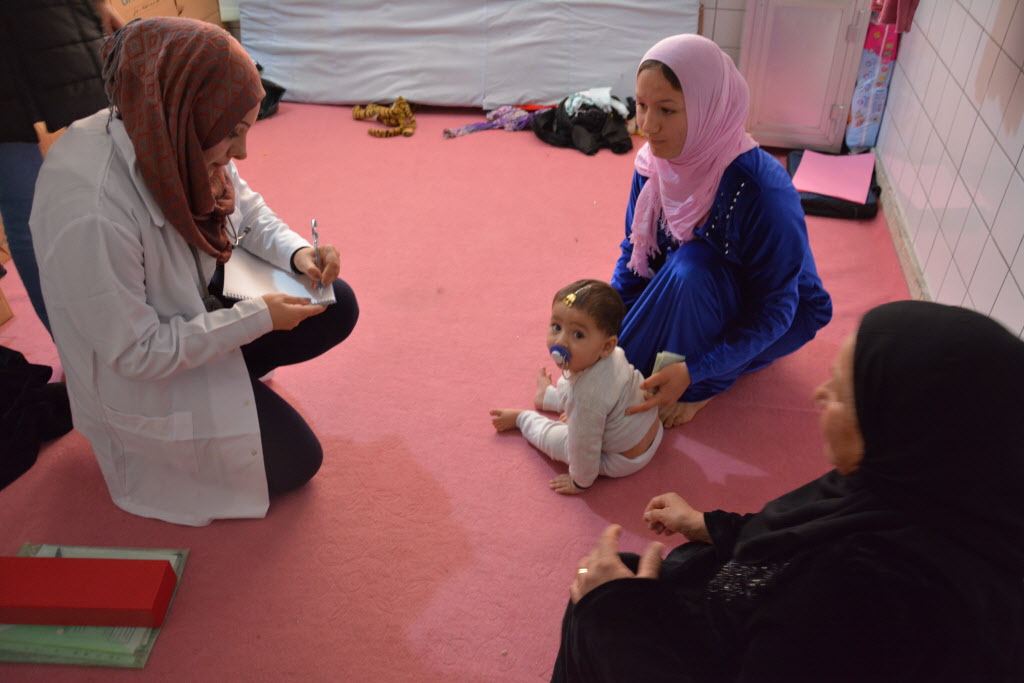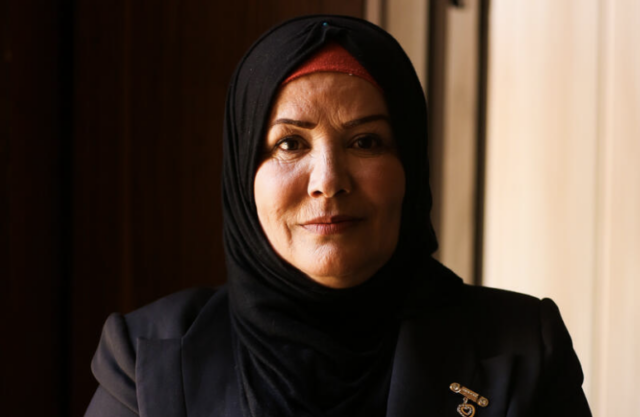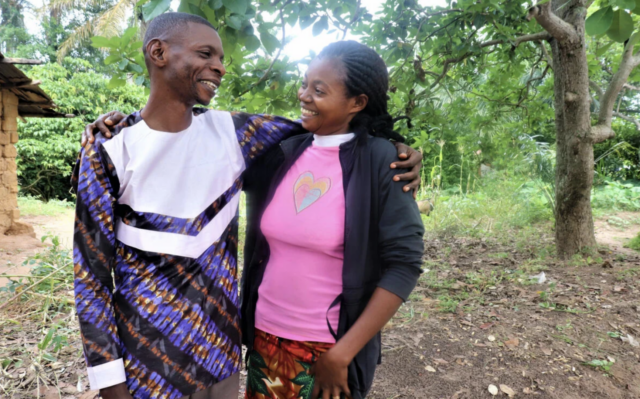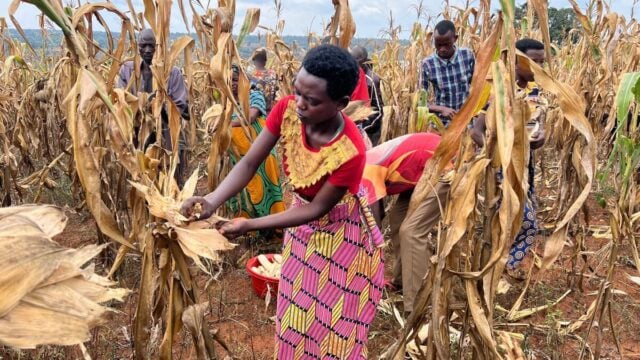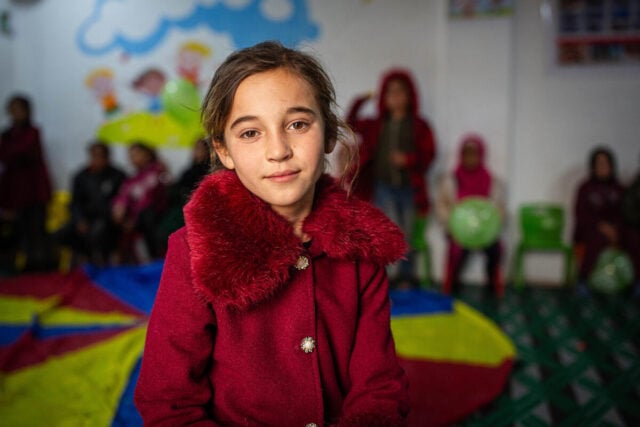‘Our lives were in danger’
Inspired by her mother, Dr. Shema (name changed to protect identity) overcame discrimination, discouragement, and financial challenges to complete her medical education.
“Imagine, she (Dr. Shema’s mother) had to sell her jewelry … even her own wedding ring, to sustain my financial needs,” Dr. Shema says.
Dr. Shema speaks with admiration of the women she meets who live in dismal tent camps and unfinished buildings.
“I believe the Iraqi women are among the strongest in the world,” says Dr. Shema. “You see that in the internally displaced people’s camps. They can adjust to any situation no matter how hard it is.”
But her words could apply to herself as well.
At 43, after working for 13 years to build her practice, Dr. Shema was among the most highly-esteemed women surgeons in Mosul.
Then bombings and harassment worsened. She and her husband fled Mosul one midnight.
“We had no choice,” she says. “Our lives were in danger.”
Now, she is among nine doctors on a World Vision medical team, all of them displaced.
Dr. Shema delivers primary healthcare services to internally displaced persons (IDPs). In partnership with the World Health Organization (WHO), World Vision aims to serve an estimated 100,000 IDPs in the towns of Sulaymaniyah, Ranya, and Dohuk.
“In my own small way, I am hoping I can lift up the lives of women and children and pave the way for opportunities to ease their hardships,” she says. “We need to boost the morale of women because they are also the strength of their families.”
‘Mothers … are the cornerstones of society’
Dr. Maha (name changed to protect identity) also works with World Vision’s health program in Kurdish Iraq, providing door to door primary healthcare in camps and buildings where IDPs are living
“Even meeting the IDPs during our weekly health clinics and talking to them — showing them we care — gives me a sense of fulfillment,” Dr. Maha says. In addition to consultations and free medicines, the medical team dispenses “good words” that “can ease people’s suffering.”
Dr. Maha was the first woman in her family to graduate from university. Where she grew up, in Salah Al-Din, women were not encouraged to pursue higher education.
“My parents encouraged me to become a doctor,” she says. “My mother told me never to put limit to what I could do. She dreamed for us and with us.”
“My parents encouraged me to become a doctor. My mother told me never to put limit to what I could do. She dreamed for us and with us.”—Dr. Maha
Her resolve to become a doctor was strengthened when her aunt and nephew died during childbirth. “It was a shock to me,” Dr. Maha says. “She had three children.”
From that time on, Dr. Maha committed herself to helping women.
“Mothers are so important to the family. They are the cornerstones of society,” she says. “With the death of my aunt, her children lost their direction.”
Dr. Maha says providing opportunities for women will ensure a better future for Iraq.
“If we educate women, we also educate the family and society,” she says.
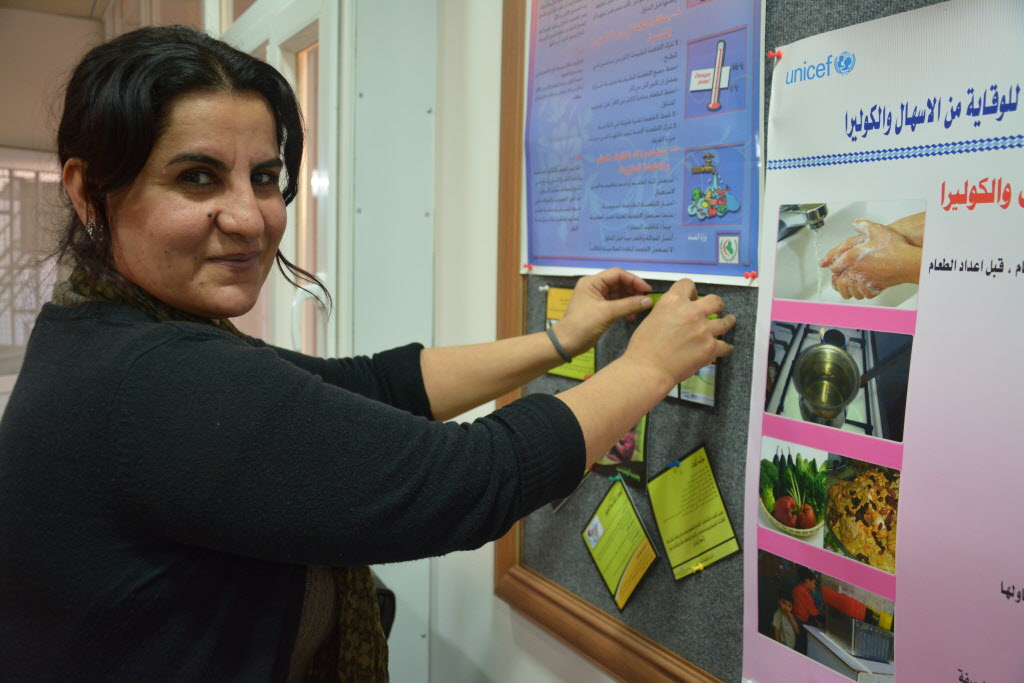
‘We continue to endure’
Jwan Omar Said’s childhood was marked by violence and loss. Militia abducted her father in Baghdad when she was only a month old, and her brother one year older. Later, the family learned he was burned to death.
She describes how her mother, Fatima, “was jobless, lost her husband, and struggled to raise two growing children.”
Yet, Fatima encouraged her daughter’s love of art. She told Jwan she got her artistic gifts from her father, who was a very good carpenter.
Jwan earned a degree in fine art, concentrating in art therapy. After living in Sweden and Canada for 20 years, she returned to Iraq to help her fellow Iraqis cope with trauma and loss through art therapy.
Today, she supervises World Vision programming at a Women and Young Children’s Space in Sulaymaniyah Governorate. Breast-feeding mothers bring their children to the center where they are helped to make sure their children receive the nutrition and health care they need.
“Even the simplest of creative activities can provide a venue for women and children to start their healing process,” she says.
She wants to see children smile and women become confident and at ease with themselves. “They [Iraqi women] are very resilient; they have gone through so many conflicts.”
